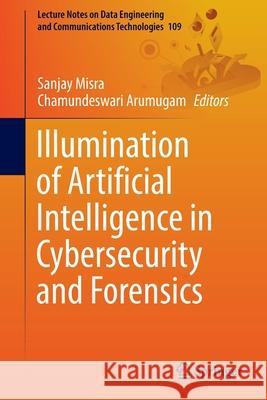Illumination of Artificial Intelligence in Cybersecurity and Forensics » książka
topmenu
Illumination of Artificial Intelligence in Cybersecurity and Forensics
ISBN-13: 9783030934521 / Angielski / Miękka / 2022 / 390 str.
Kategorie:
Kategorie BISAC:
Wydawca:
Springer
Język:
Angielski
ISBN-13:
9783030934521
Rok wydania:
2022
Ilość stron:
390
Waga:
0.54 kg
Wymiary:
23.39 x 15.6 x 2.03
Oprawa:
Miękka
Wolumenów:
01
Dodatkowe informacje:
Wydanie ilustrowane











